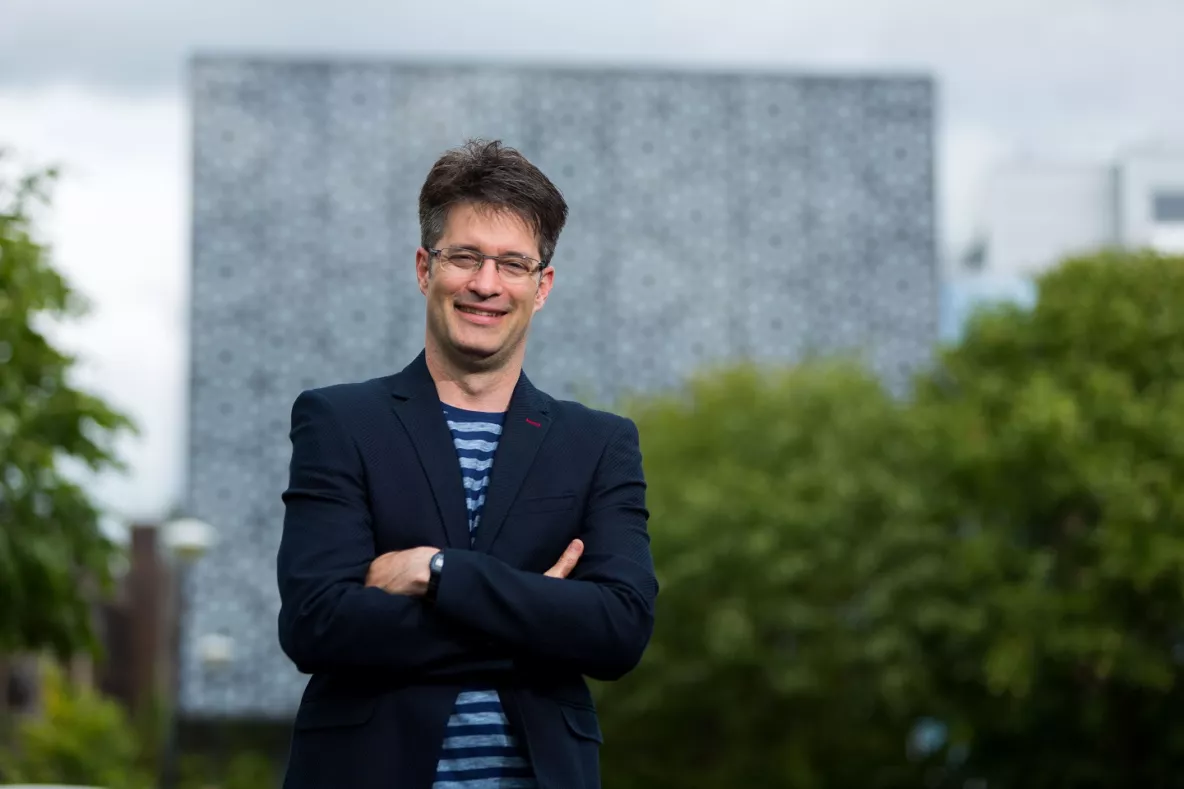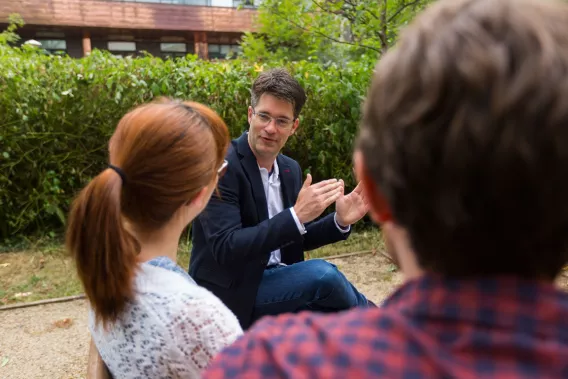
A University of Limerick researcher has been awarded almost €1.5 million in European Research Council funding to investigate the dynamics of social influence in digital societies.
Dr Mike Quayle from UL’s Department of Psychology, is one of 403 talented early-career researchers across Europe, and just six in Ireland, to have been awarded an ERC grant in today’s announcement of €603 million in total.
“As we have seen with Brexit and the election of the US president Donald Trump, social influence works differently in digital societies. Our online communities are packed with bots that seem like real people but are producing social influence for commercial or political interests. Right now, we don't know how much influence they have or how to resist. For example, in the British referendum on leaving the EU, Vote Leave breached spending limits to double down on their social media campaigns; but they now claim that the extra spend could not have changed the result of the Brexit referendum. So which is it? Are our societies vulnerable to social media influence by companies like Cambridge Analytica, or are these worries over-hyped?” Dr Quayle asked, and it is questions such as this one, that he hopes to address within his research.
The project will combine the expertise of the UL’s Centre for Social Issues Research and the Mathematics Applications Consortium for Science and Industry (MACSI) to unlock a key issue facing contemporary society with the latest developments in Network Science.

“Understanding the structure of group attitudes in networks will help us to understand how networks can be resilient or vulnerable to social influence in digital social networks. With this understanding, we will be able to suggest better policies to safeguard robust and cohesive collective attitudes,” he added.
Carlos Moedas, European Commissioner for Research, Science and Innovation, said: "In addition to supporting early stage European researchers, the ERC Starting Grants also help enrich the European research field by attracting and retaining foreign scientists in Europe. More than one in ten grantees come from outside the EU or its associated countries. Europe is open to the world!"
The Starting Grants will help the selected scientists build their own research teams, leading to job creation as an estimated 1,500 postdoctoral researchers, PhD students and other staff across Europe.
"At UL, we will shortly be recruiting two postdocs for five-year roles as well as two generously funded four-year PhD scholarships,” said Dr Quayle.
The President of the ERC, Professor Jean-Pierre Bourguignon, commented: "With 3,170 applications, 2018 Starting Grants were in very high demand. In spite of the additional relaunch of the ERC Synergy Grants, we were still able to award over 400 Starting Grants in this round. For the second year in a row, nearly 40% of Starting grantees are women. Regarding geographic spread, we note the number of successful applicants who will be based in the Netherlands has grown considerably since last year. We are also pleased to see an improvement of the success rate of applicants whose research will be carried out in Central and Eastern Europe - while the number of these applicants remains low. Scientific talent and ambitious ideas are to be found all over Europe and the ERC aims to give them stimulus wherever they may be."
The new grantees' curiosity-led research covers a diverse range of topics. In Germany a grantee will shed light on what makes our cells uniquely human, as opposed to ape. A scientist based in Sweden will investigate ultrafast events, taking one quadrillionth of a second. Another scholar in France will challenge the current theories of how Japan became a global industrial power.
ERC Starter Grants were also awarded to Trinity College Dublin (two), NUI Galway (two) and the Science Foundation Ireland funded research centre AMBER, of which UL is a partner.